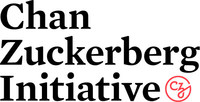The Chan Zuckerberg Initiative (CZI) announced the launch of a new biomedical research hub in New York City that will catalyze collaboration between leading scientific and technology institutions in the area, with the goal of solving grand scientific challenges on 10- to 15-year time horizons. CZI is founded by Facebook founder Mark Zuckerberg and his wife Priscilla Chan.
The Chan Zuckerberg Biohub New York (CZ Biohub NY) brings together Columbia University, The Rockefeller University, and Yale University to create new technologies to characterize and bioengineer immune cells — with the ultimate goal of creating disease-specific “cellular endoscopes” that can detect early stages of disease in cells, monitor cell changes, and resolve diseases before they become untreatable. The exact location of the hub in NYC has yet to be determined.
The CZ Biohub NY is the fourth research institute in the Chan Zuckerberg Biohub Network, a groundbreaking collaborative model for scientific research. The Network includes the first CZ Biohub, in San Francisco, a second in Chicago, and the Chan Zuckerberg Institute for Advanced Biological Imaging in Redwood City, CA. Together, the CZ Biohub Network institutions pursue science and technologies that quantify human biology in action to help researchers measure how cells and tissues function to increase our understanding of health and disease. In addition to the funding from CZI, the State of New York and New York City are also contributing $10 million each to the CZ Biohub NY.
“We’re thrilled to launch the New York Biohub, which will focus on harnessing our immune system to detect, prevent, and ultimately treat diseases before they advance,” said CZI co-founder and co-CEO Priscilla Chan. “Right now, diseases such as cancer and Parkinson’s are often diagnosed after the onset of obvious symptoms, making them harder or even impossible to treat. To change that, researchers and engineers at the New York Biohub will bioengineer immune cells to scout, report, and repair damage to our cells before it leads to serious illnesses. Solving ambitious challenges, like identifying diseases earlier when our options for treatment are far better, underpins our work across the Biohub Network, and we’re excited to continue to scale this collaborative research model with the New York Biohub.”
Lab tests and imaging scans can help doctors make some early diagnoses, but developing tools that can detect abnormalities before diseases take hold presents an opportunity that offers the potential to dramatically improve medical care. Immune cells are ideally suited to meet this challenge, as they are the only cells in our body that come in contact with virtually all of our tissues. They constantly roam the body by way of the blood and lymphatic system, helping monitor and maintain the health of our organs. CZ Biohub NY will unlock the vast information stored in the “molecular memory” of immune cells using single-cell biology tools, cutting-edge experimental technologies, and machine learning and artificial intelligence (AI), with the goal of bioengineering new functions into immune cells to continuously monitor and manage organ and tissue health.
“The grand scientific question that these scientists are going to go after is around cellular engineering — to engineer immune cells to detect specific diseases and then eventually encode their molecular make-up, so that scientists can use it as a diagnostic and eventually, they can engineer cells to go to a site of a disease and help treat it,” said CZI co-founder and co-CEO Mark Zuckerberg. “The ultimate goal is to not go after a specific disease – it’s to create a new tool or platform that all scientists can use to study and make more specific advances.”
“With a world-class faculty, cutting-edge research, and a time-tested model for innovation, the Chan Zuckerberg Biohub will help us continue to build the future of medicine in New York,” NY Governor Kathy Hochul said. “This new Biohub will open a world of possibilities for early disease prevention, detection, and treatment, and thanks to this investment and our partnership with Mayor Adams and the Chan Zuckerberg Initiative, our state is one step closer to the next major medical breakthrough.”
New York City is a growing hub of life sciences research, with nine major research centers and over 100 total research centers, over 50 hospitals, a highly talented and diverse workforce, and industry-leading companies. Through LifeSci NYC, a $1 billion initiative overseen by the New York City Economic Development Corporation (NYCEDC), the City of New York is on track to create 1,000 companies and 40,000 jobs, unlock 10 million square feet of wet- and dry-lab real estate and generate billions of dollars in economic impact over the next 15 years.
“New York City’s unparalleled diversity, thriving innovation ecosystem, and world-class research institutions have made us a life sciences powerhouse. And the strong partnerships between city government, state government, the private sector, and leading universities have made us number one in the country,” said Mayor Eric Adams. “Thanks to this nearly $300 million joint effort with the Chan Zuckerberg Initiative, Governor Hochul, and three top-tier academic institutions, the new Chan Zuckerberg Biohub New York will break biomedical barriers — as New York City continues to do its part to foster a healthier world.”
The CZ Biohub NY will first focus on learning more about the molecular memory and states of immune cells when they sense signals secreted by diseased cells and organs. This will help predict early signs of disease that are tissue-specific. Building on this, researchers will work to understand the mechanisms of immune cell trafficking to further direct cells to desired organs on-demand and to sense novel disease signals they are not yet built to detect. This will help CZ Biohub NY to bioengineer immune cells that can travel to specific organs, sense any potential abnormalities, and then record information in their molecular state for easy detection from a simple blood draw — or by using non-invasive engineered devices — for further interpretation by scientists and eventually physicians.
CZ Biohub NY will initially apply these novel, technology-driven approaches to hard-to-detect cancers such as ovarian and pancreatic cancers; neurodegenerative diseases, including Parkinson’s and Alzheimer’s; as well as aging and autoimmunity. The next step is further training immune cells to make targeted repairs, such as promoting inflammation at a tumor site to activate a robust immune response.


